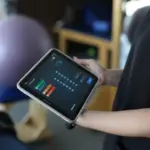Paraplegics, quadriplegics, and other spinal cord injury (SCI) patients have more options for care than at any other time in history. When treatments in their home healthcare systems aren’t providing a cure, there are plenty of advanced, accredited and affordable options abroad.
In fact, the “medical tourism” trend has flourished to the point that affluent governments such as Dubai and Oman have secured official agreements to send their police officers and royal guards to hospitals in Thailand.
Those are Federal employees receiving general healthcare. The Qatari embassy in Bangkok, however, recently made an announcement that has the potential to be much more meaningful: It will subsidize the cost of the breakthrough surgery called Epidural Stimulation for a private citizen with SCI.
What is Epidural Stimulation?
Epidural Stimulation involves the surgical implantation of a device that delivers electrical currents to spinal cord tissue below an SCI. The device reestablishes the connection between a patient’s brain and their extremities, restoring involuntary bodily functions (e.g. bladder and bowel control, temperature regulation, and sexual health) as well as voluntary movement.
Verita Neuro (formerly Unique Access Medical) was the first team to offer Epidural Stimulation commercially, and roughly 70 patients have regained some form of voluntary limb movement. And while there are numerous clinical trials underway around the world, they have been slowed by bureaucratic impediments and unable to go to market.
In the meantime, Verita Neuro has become an international centre of excellence and built relationships with countries that subsidize their citizens’ need to travel abroad for certain procedures.
Why did Qatar sponsor an Epidural Stimulation surgery?
Verita Neuro’s facilities in Bangkok, Thailand, are the best place in South-East Asia to be treated for an SCI — even if you live elsewhere, such as the country with the world’s higher per capita income, Qatar.
Patients stay in a state-of-the-art, JCI-accredited hospital for a five-week surgery and rehabilitation regimen that includes physical and occupational therapy as well as nutrition planning and specialized IV drips.
As a treatment for paralysis, Epidural Stimulation is more advanced than anything found in Middle Eastern hospitals. And even though the program is open to any patient who qualifies medically, the Qatari embassy is providing their support.
This is likely due to the fact that they recognize how powerful the procedure can be, and see the potential for an ongoing partnership with Verita Neuro such as the ones we have built with organizations in Canada, India, Brazil, and Mexico.
Governments and their citizens aren’t the only ones who benefit from these alliances. Every Epidural Stimulation surgery and rehabilitation program leads to further discoveries, providing more and more information to help researchers advance towards a cure for paralysis.
What does the future hold for Epidural Stimulation?
For starters, receiving treatment will get easier with each passing year. Thailand currently offers 90-day visas for medical tourists from over a dozen countries and has plans to add several more.
In terms of treatment improvements, every time another stimulator is implanted, researchers and therapists learn more about how to configure them. At present, a patient taking unassisted steps is the goal. Verita clinicians and researchers believe that in time, a cure could become a reality.
We deliver incredible results and want to treat as many people as possible, whether or not they have been sponsored by their embassy. So if you or someone you know works with a government entity that might be interested in building a relationship with Verita Neuro, send us a message today.





